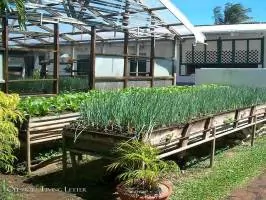
Living Self-Sufficiently Isn’t About Prepping
This Isn't About Prepping For A Zombie Apocalypse
In his opening presentation for my Self-Sufficiency Workshop in Belize this month, Wade Hahn made an important distinction. Being self-sufficient isn’t the same as being a doomsday “prepper.”
Preppers hoard food and supplies waiting for the world to end… for the zombies to attack, as I put it. Being self-sufficient is about being able to take care of yourself and your family long term. This isn’t about hunkering down until you run out of canned goods. It’s about setting yourself up to be able to feed yourself and your family indefinitely from what you produce yourself. It can also mean going off-grid or having some kind of power backup so you don’t have to worry about the central services going down… as happened this past weekend thanks to the blizzard on the U.S. East Coast.
Neither is being self-sufficient about being isolated or even about being 100% independent. You don’t have to figure out how to grow absolutely everything you consume yourself. The current idea of self-sufficiency can be as much about community as it is about independence and control. You can focus on certain things that you like growing or doing and trade for things that others are producing.
You trade products, expertise, and by-products. One of the speakers at our event talked about his father-in-law, who keeps bees but doesn’t use the bee’s wax for anything. So he asked if he could have it. He and his wife make it into soaps and candles.
You can take this self-sufficiency idea as far as you’d like. It could be as simple as growing some lettuce in your back yard.
What Do You Need To Get Started?
We looked this weekend at a very compact aquaponics system, only 3 feet wide by 3 feet deep and 3 1/2 feet tall, that can support a couple dozen fish and grow a couple dozen heads of lettuce at a time. Few of us are likely up for living off fish and salad every day, but the system was small enough that it could fit on the balcony of my condo in Panama City.
That’s one of the most important things I learned this weekend. You don’t need much land or even much knowledge to get started at this. Listening to the presentations on growing vegetables, building orchards, and raising livestock and then visiting different farms and seeing different systems, I realized how easy it really can be to get started at this, no matter where you’re living and even if you’re just beginning to explore these ideas, as I am.
You’ll have a learning curve, but to grow some basic items in enough volume to put dinner on your family’s table, you don’t have to be a farmer. I guess all gardeners know that.
Listening to the discussions this weekend, I remembered the raised-bed kitchen garden we built behind our home in Ireland. We didn’t create it with this thought in mind, but it was the basis for self-sufficient living. A 45-foot-by-45-foot garden should be large enough to provide for a family of four. Add to that some fruit trees, a small aquaponics system, and a chicken coop, and you’re mostly self-sufficient.
My point is that you don’t need a lot of land for this… as little as an acre can be enough, including space for your house. If you want to keep livestock, you’ll need more space, but not much more.
As Alistair, the livestock rancher who presented at last weekend’s seminar explained, many Belizeans keep a few head of cattle as a backup plan. Should they find themselves in need of extra cash for an emergency, they sell a cow. Here in Belize, you can support a cow on two acres of land without supplemental feeding.
In fact, Alistair explained, cattle ranching is an opportunity in Belize. The beef industry in this country is small and fragmented. Most ranches have fewer than 100 head of cattle. Every head of cattle sells.
A Good Place To Go Self-Sufficient
Belize offers other agricultural opportunities, as well. This is a great place for someone who wants to create a self-sufficient life for himself and also for someone looking to make money farming. Belize produces more food than its population can consume; this country of about 350,000 people is a food exporter.
Two of its ready markets are Guatemala and the Mexican province of Quintana Roo, both of which have transitioned much of their farmland from growing food to growing African Palms for palm oil. Belizean farmers are filling the food gap.
Kathleen and I worked with Belize friends and experts to create this seminar because we wanted to learn more about the self-sufficient lifestyle. Honestly, though, I showed up for the program this weekend with low expectations. I hoped it’d be a chance for me to learn some basics that maybe someday I’d act on.
However, by Sunday evening, after the seminar had concluded, I was sold. This is something I’m eager to pursue more aggressively now, not only as a man looking for ways to protect and take care of his family but also as an investor. I’m on my way out the door as soon as I send off this dispatch to you to scout farms and ranches in Cayo currently for sale.
Lief Simon



